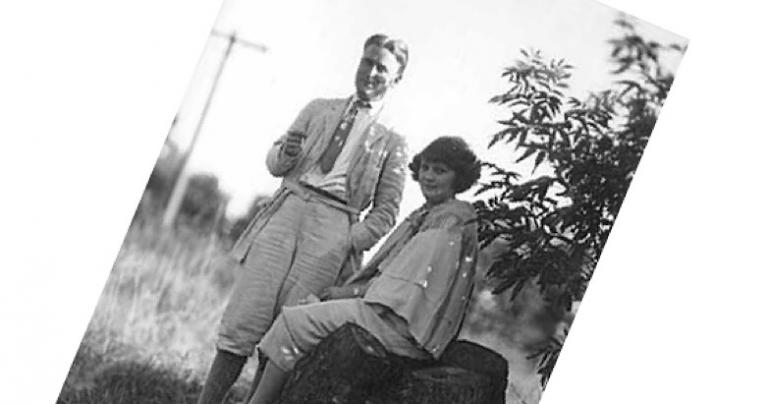 Temperance, that great virtue, amounted to not drinking alcohol to the progressives and that is (almost) unforgivable. That the early Progressive Movement also delivered votes for women makes the Prohibition Ammendment a forgivable error, but still shakes your confidence in the wisdom of other things they did such as the income tax. After all, the classical virtue temperance is so much more than not drinking to excess. Thank God Karen Swallow Price (KSP) has written a book to stir it up in us.
Temperance, that great virtue, amounted to not drinking alcohol to the progressives and that is (almost) unforgivable. That the early Progressive Movement also delivered votes for women makes the Prohibition Ammendment a forgivable error, but still shakes your confidence in the wisdom of other things they did such as the income tax. After all, the classical virtue temperance is so much more than not drinking to excess. Thank God Karen Swallow Price (KSP) has written a book to stir it up in us.
Temperance Stirred in Us
KSP knows good stories can teach us virtue and great stories do so wonderfully well. That’s the classical and Christian traditions, even if some of us have forgotten. Picking Great Gatsby (or anything by Fitzgerald) to illustrate temperance seems like a jest: a person can get a bit tight just reading Fitzgerald.
Great Gatsby is not Carrie Nation’s kind of novel, but just the sort our nation needs just now if we read it well. KSP helps, starting with an Aristotelian definition of temperance. The virtue:
helps us to desire pleasures in a reasonable manner, desiring them neither too much nor too little, the virtuous mean between the vices of self-indulgence and insensibility.
Our desires become properly ordered if we are temperant: we don’t want too much or too little of any good thing. If I were temperate, then seeing a Mason jar of pickled corn would not inflame me to eat the whole jar immediately or to run away since I should never enjoy something as delicious as pickled corn. Temperance is the Goldilocks virtue: I would enjoy and desire the amount of pickled corn that “was just right.”
A Quibble
And here I must introduce a quibble: KSP uses our popular understanding of Stoic and Epicurean philosophy. That’s fair, so I will merely point out (because I am that kind of guy at a party) that actually the Stoics were not so stoic and the Epicureans were not hedonists. For the Stoics, a life lived by pure reason allowed for “private teachings” that allowed for (in principle) consuming the corpses of dead bodies (don’t waste the flesh!), even of parents. Epicureans wanted the good life, but this amounted to getting rid of fear. As a result, much of Epicurean teaching eschewed hedonism altogether. I write more about this in When Athens Met Jerusalem.
You do not need to care, but you might! In any case, in their modern usage KSP is right to point out that we veer between excess and defect: Bacchus or Scrooge. Most of us are in little danger (in America) of wanting too little and so our wise guide has pointed us to the novel of excess, Gatsby.
The Excessive Gatsby
Gatsby is set (as KSP succinctly summarizes) in an era of Prohibition and bootleggers, defect and excess. Temperance is dead under the Temperance Ammendment. Yet KSP goes further (rightly) and points to a deep problem in a growing perversion of the American Dream:
Written in 1925 and set in 1922 . . . the novel presents a society that replaced moderation with excesses on both ends of the spectrum. Self-governance, the principle many observe to be the foundation of the American experiment, diminished, and with it the virtue of temperance to which it is connected. The Great Gatsby interrogates, eerily and prophetically, the reckless excesses of American life during the Prohibition era, excesses that would contribute to the economic crash a few years later, bringing about the Great Depression and the tumbling down of the American Dream.
The defective man wishes to control desire externally with laws. Some law is necessary, but liberty suffers with every rule we pass. The real virtue of temperance is not advanced at all by laws, so liberty is greatest when temperance is written in our hearts. The excessive person sees the legalistic and reacts with total liberty he cannot handle and his desires are neither sated nor helpful. He amuses himself to death.
KSP hammers home the utter folly of the title character’s life. He lives in excess, but enjoys nothing. His life is dedicated to winning, but he is lost. He has all the pleasures-a-man-can-eat, but to a sated man even honey is tasteless.
In Which KSP is Prophetic Using Fitzgerald
The dream of a republic where law and liberty are balanced in temperance is the truest American Dream. KSP dares to note that this dream is corrupted by the marketing of conspicuous consumption:
A few years before the time of The Great Gatsby, the term “conspicuous consumption” originated in economic theory to describe the values of this new culture, in which those who were made wealthy through opportunities offered by the Industrial Revolution sought to acquire and flaunt material possessions as symbols of their new economic power. America became what the turn-of-the-century marketing pioneer John Wanamaker called the “land of desire.”
We are not just fouling our planet with our stuff, our “conspicuous consumption,” but our souls. Free markets cannot survive if we use our liberty to excess. We can financially afford to waste stuff, but we cannot spiritually afford to live in excess. KSP:
Temperance is, for many of us raised in a culture birthed by consumerism, a virtue difficult to attain.
Amen. Lord Jesus Christ, son of God, have mercy on me a consumerist sinner.
Yet. Yet. The temptation is to jump to defect: stuff is sinful. God made stuff and as creatures in His image so do we. KSP refuses to reduce temperance to avoiding overstuffing our lives just as she does not confuse temperance with totally abstaining:
Inherent to temperance is balance, as evident in the Old English word temprian, which means to “bring something into the required condition by mixing it with something else.”
Broken people, like I am, want easy answers: self improvement is one method that Gatsby chooses. We will just do it, but Gatsby couldn’t and I am not even a poor man’s Gatsby. KSP points out that self-improvement is just selfish, the people around us props in our drama.
God help me. Fitzgerald sees so clearly that much of the “romance” those of us who think of ourselves as romantic is simply selfishness. Gatsby does not love Daisy, the human:
Gatsby’s vision of Daisy, and of love and life itself, is disconnected from reality. This disconnect began in his youth, when his sense of shame over his “shiftless and unsuccessful” parents inspired a revisioning of himself and his own origins, and “to this conception he was faithful to the end.”
We think we love each other, but we are merely consuming: “ society in which commodities have become god” and we are all commodities. Fitzgerald can free us, if we listen and recall:
. . .the novel reminds us that we too are unreliable narrators of our own stories. And therefore the judgments made by our own limited perspectives must be tempered against the all-seeing eyes of God.
Buy the book.
————————————-
This will be a twelve part series: Introduction, Prudence, Temperance,

















